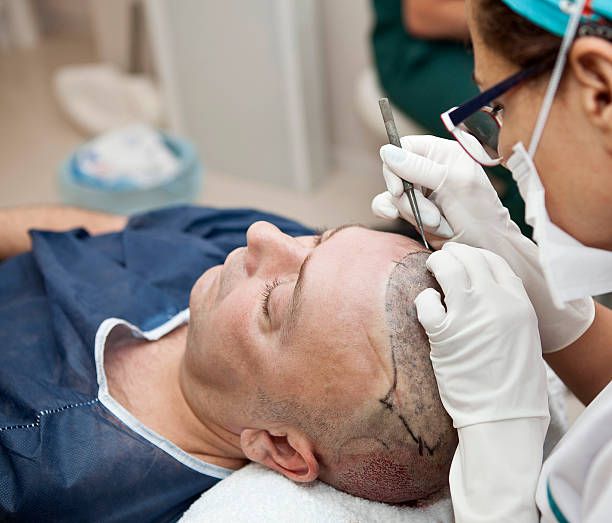
Hair Transplant Surgery: Is It Right for You?

Hair loss is a common issue that affects millions of people around the world. It can be caused by several factors, including genetics, age, hormonal changes, and certain medical conditions. While some people may opt for hairpieces or wigs, others may consider hair transplant surgery as a more permanent solution to their hair loss. However, before deciding on this procedure, it is important to consider various factors, including the potential risks and benefits, as well as the ethical and religious implications.
One of the most commonly asked questions regarding it is whether a hair transplant is halal or haram. In Islam, any medical procedure that alters the natural state of the body is considered permissible as long as it is done for a valid medical reason and is not harmful to the individual. Hair transplant surgery, therefore, can be considered halal if it is done to restore hair loss caused by a medical condition or injury. However, it may be considered haram if it is done for purely cosmetic reasons or if it involves the use of non-halal substances, such as pig-derived products.
Hair transplant surgery involves the removal of hair follicles from a donor site, typically the back of the head, and their transplantation to the balding or thinning areas. There are two main types of hair transplant procedures: follicular unit transplantation (FUT) and follicular unit extraction (FUE). FUT involves the removal of a strip of skin from the donor area, which is then dissected into individual follicular units for transplantation. FUE, on the other hand, involves the extraction of individual follicular units directly from the scalp using a small punch.
While hair transplant surgery is generally considered safe and effective, it is important to note that it is not suitable for everyone. Candidates for the procedure should have healthy hair follicles in the donor area and sufficient hair loss in the recipient area to warrant the transplantation. They should also have realistic expectations about the results of the procedure, which may take several months to fully appear.
Hair transplant surgery is also not without its potential risks and complications. These can include bleeding, infection, scarring, and poor growth of transplanted hair. Additionally, the procedure can be quite costly and may require multiple sessions to achieve the desired results.
In conclusion, hair transplant surgery can be a viable option for those experiencing hair loss, but it is important to consider all factors before making a decision. This includes not only the potential risks and benefits but also the ethical and religious implications. While hair transplant surgery can be considered halal if done for a valid medical reason, it may be considered haram if done purely for cosmetic reasons or using non-halal substances. Ultimately, it is up to the individual to weigh the pros and cons and make an informed decision based on their unique circumstances.
The Cost of Hair Transplantation: Is It Worth It?
Hair transplantation is a cosmetic surgical procedure that involves removing hair follicles from one part of the scalp and transplanting them into another area with thinning or balding hair. The cost of hair transplantation can vary widely depending on the extent of the hair loss, the number of grafts required, the technique used, and the location of the clinic.
On average, the cost of a hair transplant procedure can range from $4,000 to $15,000 or more, depending on the factors mentioned above. It is important to note that insurance typically does not cover the cost of cosmetic procedures such as hair transplantation, so patients will be responsible for covering the full cost of the procedure.
Despite the high cost of hair transplantation, many people find it to be worth the investment. The results of a successful hair transplant can be life-changing, improving one's appearance and boosting self-confidence. Hair transplantation is also a long-term solution to hair loss, unlike other methods such as hairpieces or wigs, which need to be replaced or maintained regularly.
Moreover, compared to other cosmetic procedures, the cost of hair transplantation may be considered reasonable. For example, the cost of a facelift or a breast augmentation surgery can easily exceed the cost of a hair transplant.
When considering the cost of hair transplantation, it is important to also factor in the potential risks and complications of the procedure, as well as the potential for additional sessions or touch-ups in the future. It is also important to carefully research and choose a reputable clinic with experienced and qualified surgeons to ensure the best possible outcome.
In conclusion, the cost of hair transplantation can be significant, but many people find it to be a worthwhile investment in their appearance and self-confidence. It is important to carefully consider all factors before deciding to undergo the procedure, including the potential risks, benefits, and cost, and to choose a reputable clinic with experienced surgeons to ensure the best possible outcome.
Appreciate the creator